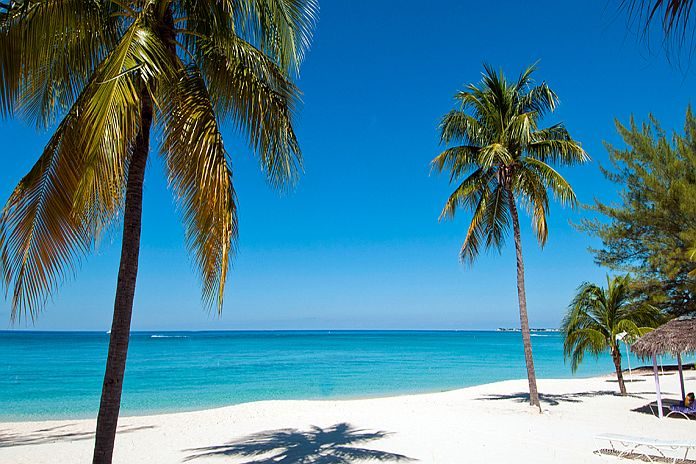GEORGE TOWN, Cayman Islands (CNS) – Scientists at the Central Caribbean Marine Institute (CCMI) on Little Cayman have warned that the removal and destruction of bedrock, coral and sand to make way for the proposed cruise dock will have a long term negative impact on Seven Mile Beach as well as the wider health of the local marine environment.
The world-respected coral experts have also dismissed the possibility of relocating coral from the harbour and urged stakeholders to reconsider this project before it’s too late.
In a press release, the institute said a much closer look at the future and lasting impacts on Grand Cayman by the proposed cruise berthing and cargo facility was needed while there was still time, as the scientists said that Cayman’s “gorgeous beaches”, including the iconic Seven Mile Beach, are under threat from it.
“CCMI is concerned about the detrimental impacts to Seven Mile Beach and the coral reef ecosystem in the George Town area,” the experts said, as they explained why this important beach is at risk.
Beaches here have been built over tens of millions of years by the stony limestone skeletons of millions of coral reef organisms, which break down from natural physical and biological processes to produce the sand.
“The longer-term impact of the proposed George Town dock construction and the removal of sand, corals and bedrock is, therefore, an extremely important aspect to consider,” the CCMI scientists stated. “Any removal of depositional material, which is an important part of the overall sand budget and contributes to the formation of the beaches, Cayman’s most iconic tourism product, is detrimental.”
CCMI added that protecting sources of sand was critically important for businesses that rely on coastal tourism, for local residents who enjoy the beach, and the cultural and natural heritage of the islands.
“Home and resort owners on Seven Mile Beach, and everyone who enjoys Seven Mile Beach in particular should think seriously about the impacts of this proposed dock project on reefs, and the part corals play in contributing to Cayman’s tourism product and healthy ocean ecosystem,” the experts said. “We recognise that there are many complex processes contributing to Seven Mile Beach’s sand budget but what is proposed will undoubtedly affect Cayman’s most famous beach.”
The long-term risk from dredging and coral removal goes beyond the loss of coral and tens of thousands of species living on and around the reef, but the scientists have painted a bleak picture about how this controversial project could contribute to a gross reduction in the production of sand that makes up Grand Cayman’s beaches.
Tourism minister Moses Kirkconnell has previously stated that if the project posed a serious risk to Seven Mile Beach, that would put an end to the propose development. But following the publication of the first environmental impact assessment in 2015, which had suggested there was no immediate thereat to that particular beach, government has pressed on. It opted to change the design, pushing the proposed cruise piers further into the ocean, claiming this would lessen the marine damage.
However, the change in the design is understood to have cut the reef destruction by only a very small percentage by marginally reducing the dredging area. But a considerable amount of the reefs, somewhere in the region of 12 acres, in the George Town Harbour will still be directly destroyed.
But in addition to that, an as yet undefined amount of coral will die as a result of the massive amount of sediment and silt that will be produced during construction and then the future operation of the facility.
Government has raised the possibility of coral relocation and CNS understands that the proposed developers have earmarked some $10 million to invest in relocation to an area close to the George Town cemetery. But so far, no tests have been conducted and the department of environment has made it clear on several occasions that this is not a viable option for saving reefs.
Now the CCMI has gone further, warning that there has been little success anywhere in the world with coral relocation. The institute pointed out that claims about relocation as a solution are misplaced, since positive results from coral regeneration and relocation remain elusive. The scientists said relocated corals across the Caribbean region are typically suffering 80 percent mortality within two years of being moved.
“Little hope for replenishing the sand on Seven Mile Beach in the long-term exists, due to the limited proven success of coral relocation as a mitigation strategy. The proposed dock construction will disrupt an entire ecosystem by removing the corals and sand,” the experts warned.
Despite some success in growing corals, the institute said that 80 percent of its own nursery-reared corals eventually die when out planted or removed from the nursery and placed in the wild environment. The scientists pointed out that this mortality is a well-known barrier to coral regeneration and restoration around the world.
“We are working hard to find the answers but are not there yet,” the scientists said, adding that relying on the relocation of 12 acres of coral as a mitigation strategy to this project is a misnomer. What little success the institute has had growing coral over the last eight years has involved a specific type of coral from the Acropora genus that is known to grow quickly.
“But the whole-scale relocation of coral being proposed as a mitigation strategy within the dock proposal is not proven, includes many slow growing corals and does not address the widescale habitat loss at an ecosystem level.”
CCMI stated that coral reefs are the most threatened ecosystem on earth. “If it was that easy to relocate corals, everyone would have done it successfully already and reefs would not be critically endangered,” the experts noted, as they urged a rethink of the dock proposal.
Republished with permission of Cayman News Service





